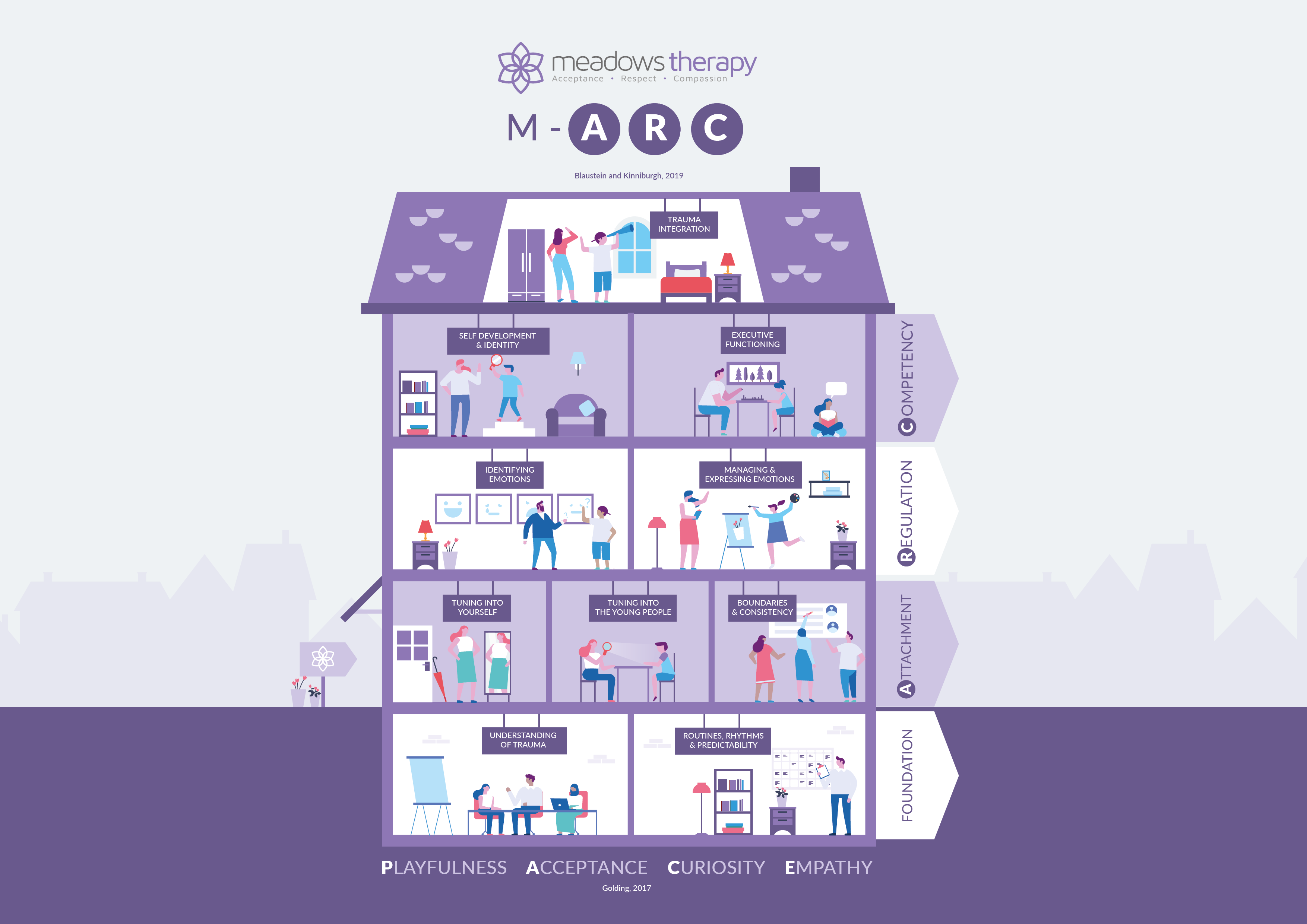
At Meadows Care we offer trauma informed, therapeutic, residential care which includes a wraparound psychologically informed therapy service. This service is informed by a comprehensive understanding of the impact of developmental trauma. \u2028
Developmental trauma describes the impact of early experiences of abuse, neglect and disrupted attachments on children’s functioning across all domains. Children who experience developmental trauma have been exposed to an environment marked by multiple and chronic stressors, frequently within a caregiving system that is intended to be the child’s primary source of safety. The impact of these early traumatic experiences are seen on immediate and long-term outcomes for young people including behavioural difficulties, struggles engaging in typical activities, and mental health outcomes.
While, in the course of development, most children have the chance to invest their energies in developing various skills and abilities children who have experienced developmental trauma must focus on survival. The research tells us that early trauma results in a number of vulnerabilities in children and young people across a range of areas, including: cognitive functioning, emotional state, behavioural difficulties, physiological changes, difficulties in relating to others, and poor self-esteem.
At Meadows Care we have adapted and embedded the Attachment, Regulation and Competency (ARC) model across all of our residential homes. The Meadows-ARC model is a flexible, components-based framework for intervention developed for children and adolescents who have experienced developmental trauma, along with their caregiving systems.
The ARC is an evidence-based model that has specifically been designed for residential services. ARC’s foundation is built upon four key areas of study: normative childhood development, traumatic stress, attachment, and risk and resilience. Drawing from these areas, ARC identifies important childhood skills and competencies which are negatively impacted by traumatic stress and attachment disruptions, and which – when addressed – predict resilient and positive outcomes.

All therapists have completed training in their specific area of therapeutic intervention and are skilled in psychological assessment, formulation and intervention for children, adolescents, adults and families. They also have skills in working with the system or organisations around the individual, evaluating and developing services, research, and providing psychological training and consultation.
Specifically targets those thoughts, feelings, communications, behaviors, and interpersonal exchanges
Our approachesCBT is a type of talking therapy. CBT is based on the concept that thoughts, feelings, behaviours and physical sensations are interconnected.
Our approachesArt Therapy is a form of psychotherapy that uses a mix of talking and art making, whilst Dramatherapy is an active and experimental approach.
Our approachesOur other approaches include; Systemic Family Therapy, Narrative Therapy, NVR and EMDR.
Our approaches